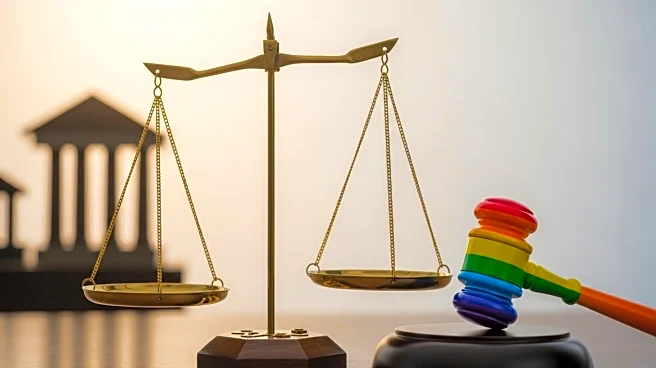What's Happening?
The Supreme Court is reviewing a challenge to Colorado's ban on conversion therapy aimed at LGBTQ minors, brought by Kaley Chiles, a Christian therapist. Chiles argues that the ban infringes on her First Amendment rights to free speech. The court's conservative majority, known for supporting free speech claims, is considering whether the law regulates conduct or violates free speech. The outcome could affect similar bans in over 20 states and raise questions about state healthcare regulations.
Why It's Important?
The case has significant implications for free speech and LGBTQ rights. A ruling against Colorado could undermine bans on conversion therapy, a practice widely discredited by medical organizations for its potential harm. It could also impact state regulations on healthcare practices deemed unsafe or ineffective. The decision may influence how states balance free speech rights with public health concerns, affecting therapists, LGBTQ youth, and advocacy groups.
What's Next?
The Supreme Court may ask lower courts to apply 'strict scrutiny' to the law, assessing whether it serves a compelling interest and is narrowly tailored. This could lead to further legal challenges and adjustments to state laws. Stakeholders, including LGBTQ advocates and religious groups, may respond with advocacy and legal action based on the court's decision.
Beyond the Headlines
The case highlights tensions between free speech and anti-discrimination laws, particularly in healthcare settings. It raises ethical questions about the role of therapy in addressing gender identity and sexual orientation issues. The decision could influence cultural and legal debates on the rights of minors and the responsibilities of healthcare providers.










